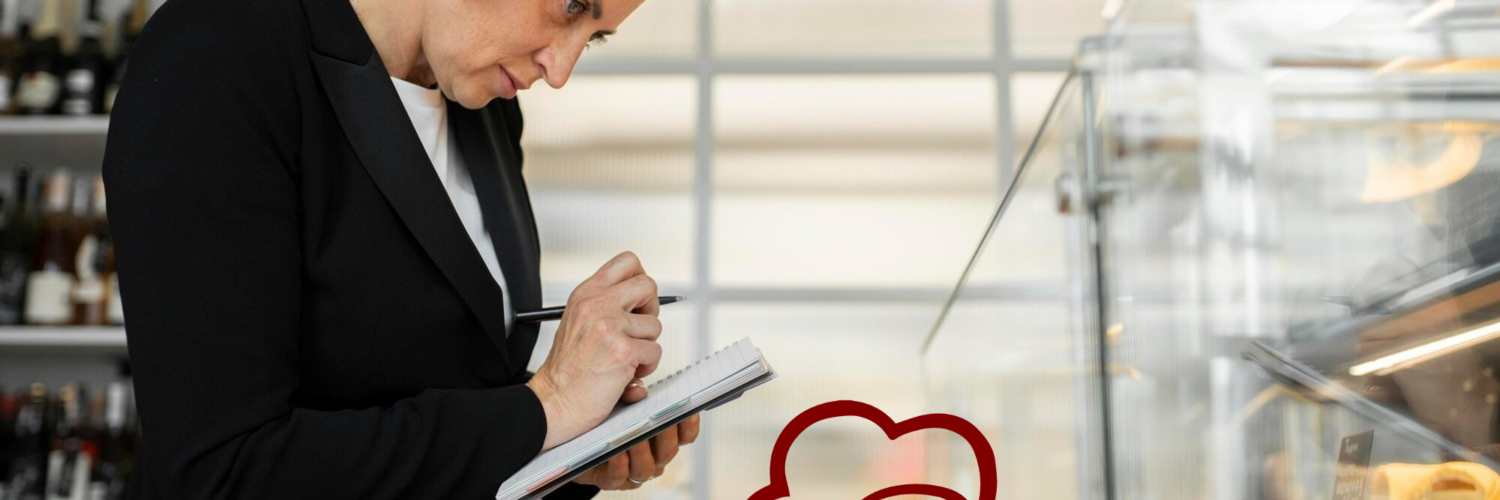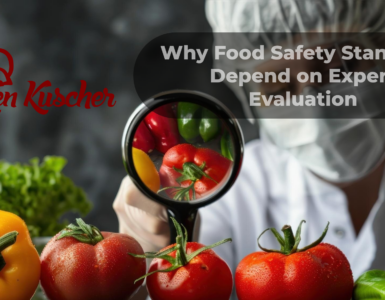The Rising Intersection of Food Safety and Litigation
In recent years, food safety has emerged as more than a matter of public health, it has become a central issue in the American legal system. The rise in high-profile outbreaks of foodborne illness, amplified by media coverage and consumer advocacy, has placed unprecedented pressure on businesses across the food supply chain. At the same time, heightened regulatory oversight from federal agencies such as the FDA and USDA, along with stricter state-level enforcement, has intensified the legal exposure for those in the industry. These converging factors have given rise to a significant surge in litigation targeting not only restaurants but also manufacturers, distributors, and food service operators of every size.
These legal battles are rarely straightforward. They frequently involve complex claims of negligence, contamination, and alleged violations of federal or state regulations. For example, cases may hinge on whether a company implemented adequate food handling protocols, complied with mandatory reporting requirements, or exercised reasonable care in preventing foreseeable risks. Plaintiffs often seek substantial compensation for medical expenses, lost income, and emotional distress, while defendants must contend with costly legal defenses and the possibility of punitive damages.
For law firms, insurance companies, and regulatory agencies, the stakes are high. Food safety is no longer viewed as just a compliance issue; instead, it has become a recurring theme in litigation strategy. Attorneys must be prepared to address scientific evidence, chain-of-custody documentation, and the credibility of expert testimony, all of which can make or break a case. At the same time, insurers are reevaluating their underwriting standards and policy exclusions in light of the escalating risks tied to foodborne illness claims.
The consequences for businesses extend well beyond financial penalties. Reputational harm is often even more damaging, as negative publicity can erode consumer trust and jeopardize long-term market position. In today’s information-driven environment, even a single contamination incident can trigger widespread media coverage, social media backlash, and lasting brand damage.
As a result, courts increasingly depend on objective expert analysis to evaluate the highly technical details that can determine liability. Specialists in microbiology, epidemiology, and supply chain management are frequently called upon to provide clarity in complex cases. Their testimony not only informs judicial decisions but also shapes broader industry standards, reinforcing the critical role of scientific expertise at the intersection of food safety and litigation.
The Role of Regulatory Frameworks in Legal Disputes
Federal agencies provide the backbone for food safety standards, and their findings are frequently cited in litigation as authoritative evidence. The U.S. Food and Drug Administration (FDA) plays a pivotal role by overseeing regulations related to food production, handling, and labeling. These standards govern everything from manufacturing practices to packaging requirements, making the FDA’s determinations essential in establishing whether a business has met its duty of care. At the same time, the U.S. Department of Agriculture (USDA) is tasked with monitoring the inspection of meat, poultry, and certain egg products, ensuring strict compliance with established safety standards. Their inspection records and enforcement actions frequently serve as critical exhibits in courtroom proceedings.
Complementing these regulatory functions, the Centers for Disease Control and Prevention (CDC) provides a data-driven foundation for both prevention and accountability. By collecting, analyzing, and publishing data on foodborne illness outbreaks, the CDC equips both regulators and litigators with objective information that often becomes pivotal evidence in lawsuits. Their epidemiological reports can help trace the source of contamination, establish causal links between products and illnesses, and strengthen arguments related to negligence or failure to comply with federal oversight.
When cases are brought before the courts, findings from these agencies do more than inform—they help shape the arguments presented. Plaintiffs’ attorneys often rely on FDA compliance reports, USDA inspection records, or CDC outbreak data to argue that a business failed to uphold food safety standards. On the other hand, defense counsel may point to demonstrated regulatory compliance as evidence of due diligence, highlighting that their clients followed all mandated protocols.
In this context, attorneys must not only understand the rules but also interpret highly technical compliance measures in ways that align with legal standards. This often requires bridging two distinct domains: the scientific precision of federal oversight and the adversarial framework of courtroom advocacy. The role of expert witnesses is central in this process. Specialists in microbiology, epidemiology, and public health provide testimony that translates regulatory findings into clear, actionable insights. Their presence lends both clarity and credibility to disputes that might otherwise be bogged down in technical complexity, ultimately guiding judges and juries toward informed decisions.
By integrating federal oversight, scientific expertise, and legal strategy, the regulatory framework becomes more than just a set of rules, it functions as a living system that actively shapes the trajectory of modern food safety litigation.
How Objective Expert Analysis Strengthens Legal Cases
Objective expert analysis is increasingly recognized as a cornerstone in modern legal cases involving food safety. When scientific evidence, compliance records, and operational standards intersect with legal arguments, the role of expert testimony becomes decisive. Attorneys cannot simply rely on regulatory documents or internal company policies; they must present the data in a way that judges and juries can fully comprehend. This is where expert witnesses provide indispensable clarity, ensuring that highly technical details are accurately translated into legally relevant insights.
Attorneys rely on expert witnesses to:
- Establish whether contamination occurred and identify its likely source.
Experts in microbiology and epidemiology use advanced testing methods and outbreak data to determine whether a specific food product was contaminated, and if so, where in the supply chain the contamination originated. This step is critical in disputes that may involve multiple parties, such as manufacturers, distributors, and food service operators. - Evaluate the adequacy of food handler training programs.
Legal claims often involve allegations that a business failed to properly train its staff in food safety standards. Experts assess whether training protocols met industry norms and regulatory requirements, offering courts a benchmark against which negligence can be measured. - Translate regulatory findings into courtroom testimony.
Reports from agencies like the FDA, USDA, and CDC carry significant weight, but their technical language is not always easily understood in court. Objective expert analysis bridges this gap, interpreting compliance data and outbreak reports in ways that directly support or challenge claims of liability. - Clarify whether a business acted negligently or within reasonable safety expectations.
Beyond identifying violations, experts contextualize whether actions taken by a company were consistent with recognized industry practices. This analysis helps distinguish between unavoidable incidents and true negligence, shaping the trajectory of the case.
By delivering impartial testimony, experts provide courts with the tools needed to cut through competing narratives and evaluate disputes based on verifiable evidence. This impartiality is especially valuable in cases where both sides present conflicting accounts of events. Judges and juries gain confidence in their decisions when guided by analysis grounded in science rather than speculation.
In many situations, the outcome of litigation depends heavily on how convincingly expert testimony is presented. A well-qualified expert can validate claims of contamination, highlight deficiencies in training programs, or confirm compliance with regulatory obligations, ultimately tipping the balance of liability. For this reason, expert analysis is not just supportive, it is often the defining factor in determining accountability in food safety litigation.
Defining the Food Safety Expert Witness
The credibility of a food safety expert witness depends on far more than just technical knowledge, it lies in a combination of academic credentials, regulatory familiarity, and real-world industry experience. Courts evaluating testimony in food safety litigation carefully assess not only the content of the analysis but also the background of the individual delivering it. A well-qualified expert brings authority, impartiality, and reliability, which makes their testimony more persuasive to both judges and juries.
In this context, professional certifications are particularly valuable. Courts often look for professionals who hold credentials such as florida food handler certificates or food handler certificates florida, which demonstrate a proven commitment to compliance, public health standards, and industry best practices. While these certifications are often associated with operational training, they also reflect an expert’s dedication to staying current with evolving food safety requirements.
Beyond certifications, strong expert witnesses possess a distinctive blend of qualifications, including:
- Direct experience in restaurant or food service operations.
Firsthand industry knowledge allows experts to speak with authority about practical challenges, staff responsibilities, and the real-world application of food safety standards. - Training in Hazard Analysis Critical Control Point (HACCP) protocols.
HACCP methodology is the backbone of modern food safety management. An expert familiar with these protocols can effectively explain whether a company identified and mitigated critical control points in its supply chain. - Familiarity with both federal and state-specific safety regulations.
From FDA labeling requirements to state-mandated food handler programs, a credible witness must be able to connect local, state, and federal standards to the facts of the case. - A proven track record of providing testimony in litigation.
Prior courtroom experience equips experts to deliver testimony that is clear, authoritative, and aligned with procedural expectations. This background also signals to attorneys and judges that the witness is prepared to withstand cross-examination.
This blend of qualifications ensures that testimony is not only factually accurate but also practically grounded in industry realities. By combining scientific knowledge, regulatory expertise, and operational insight, the food safety expert witness plays a pivotal role in bridging the gap between complex technical evidence and accessible legal arguments.
Their ability to articulate whether businesses acted negligently, complied with training protocols, or failed to meet regulatory expectations often shapes the outcome of litigation. Ultimately, the credibility of these experts transforms them from supporting voices into central figures in determining accountability in modern food safety cases.
Litigation Scenarios Requiring Expert Analysis
Food safety disputes cover a wide spectrum of situations, and each type of claim requires objective evaluation by qualified professionals. Because these cases often hinge on technical details, such as contamination sources, training protocols, or compliance failures, the involvement of an expert witness is essential. Below are the most common litigation scenarios where expert analysis plays a central role:
Restaurant Liability Cases
Restaurants are particularly vulnerable to foodborne illness claims, as they represent the direct point of contact between consumers and food. In these disputes, a restaurant expert witness may be asked to review:
- Food handling procedures, including cooking temperatures, cross-contamination prevention, and sanitation practices.
- Storage practices, such as refrigeration compliance, labeling accuracy, and shelf-life monitoring.
- Employee training programs, evaluating whether staff members received adequate instruction on food safety standards and whether supervisors enforced compliance.
When contamination occurs, determining whether a restaurant acted negligently often comes down to these operational details. The testimony of a restaurant expert witness provides clarity, helping courts establish whether the business followed reasonable practices or fell below industry expectations.
Food Service Business Claims
Beyond restaurants, broader food service operations, including catering companies, hospital kitchens, school cafeterias, and large institutional providers, are frequently involved in litigation. These cases are often more complex due to the scale of operations and the number of stakeholders involved.
A food service expert witness may analyze:
- Compliance protocols, including HACCP systems and documented safety measures.
- Supplier accountability, ensuring that vendors met regulatory standards before products entered the service chain.
- Safety oversight, reviewing whether management enforced safety audits and corrective actions consistently.
Because food service businesses handle large volumes of meals daily, even a single oversight can lead to widespread illness and extensive legal exposure. Expert analysis helps distinguish between isolated mistakes and systemic failures.
Insurance and Settlement Evaluations
The role of objective expert analysis extends beyond proving liability in court. Insurance companies frequently rely on expert testimony to accurately assess the validity of food safety claims. Experts may be tasked with:
- Reviewing medical evidence to confirm whether illnesses were caused by contaminated food.
- Differentiating between valid and exaggerated claims, ensuring insurers do not pay inflated settlements.
- Providing guidance in settlement negotiations, using impartial data to support fair compensation.
For insurers, the insights of a food service expert witness or a restaurant expert witness can mean the difference between paying a justified claim and falling victim to unnecessary financial losses.
Ken Kuscher’s Role in Expert Litigation Support
Ken Kuscher has emerged as a widely recognized authority in food safety litigation, combining deep technical knowledge with decades of professional, hands-on experience. Serving as both a food safety expert and a florida food expert witness, Mr. Kuscher provides impartial, evidence-based analysis that bridges the gap between regulatory requirements and courtroom proceedings. His expertise makes him a trusted resource not only for attorneys but also for insurers and businesses navigating the complex landscape of food safety disputes.
Mr. Kuscher’s background is uniquely comprehensive. He has worked extensively across regulatory compliance, restaurant operations, and food safety training, giving him practical insight into the daily challenges faced by food industry professionals. This multifaceted experience allows him to evaluate whether businesses met reasonable standards of care, identify where breakdowns occurred, and provide clear recommendations for corrective actions.
Over the years, Mr. Kuscher’s expertise has proven instrumental in cases involving:
- Contamination tracing, using data and scientific analysis to determine the likely source of a foodborne illness outbreak.
- Compliance disputes, where his understanding of federal and state food safety standards allows him to assess whether a business acted within regulatory expectations.
- Safety training adequacy, evaluating whether staff training programs, including requirements tied to florida food handler certificates and food handler certificates florida, met industry norms and helped prevent foreseeable risks.
What sets Mr. Kuscher apart is his ability to transform highly technical findings into clear and persuasive testimony. In litigation, where judges and juries must make decisions based on evidence they may not fully understand, his testimony provides both clarity and credibility. By grounding his analysis in objective facts and industry standards, he ensures that courts receive the impartial guidance necessary to reach fair and informed outcomes.
As food safety litigation continues to expand in scope and complexity, experts like Ken Kuscher are increasingly vital to the legal process. His balanced approach, combining scientific rigor, regulatory knowledge, and practical industry insight, positions him as a leader in expert litigation support within the food safety field.
The Future of Expert Witness Testimony in Food Safety Cases
The demand for expert testimony in food safety cases is expected to grow in direct proportion to the complexities of the modern global food supply chain. As businesses expand across borders, regulations evolve, and consumer expectations rise, the courtroom increasingly becomes a forum where science, law, and public health converge. Several key trends highlight this trajectory and point to the growing reliance on seasoned experts who can provide balanced, impartial analysis in highly technical disputes.
Digital Evidence
Courts are increasingly reliant on digital evidence, including electronic temperature logs, supplier traceability records, and compliance databases. These digital tools provide verifiable data that can confirm or challenge claims of negligence or contamination. Expert witnesses are essential in interpreting this evidence, explaining its reliability, and demonstrating whether digital compliance measures were properly implemented. As food businesses adopt more advanced monitoring systems, such as blockchain tracking and IoT-enabled cold storage, objective expert analysis will become even more critical in validating the accuracy and legal weight of digital records.
Global Supply Chain Disputes
With a growing percentage of food products sourced from international markets, global supply chain disputes are becoming increasingly common. Legal cases may involve imported ingredients, cross-border contamination, or discrepancies between federal and international safety standards. Expert witnesses with experience in both domestic and international regulations play a vital role in clarifying jurisdictional overlaps, supplier accountability, and the chain of custody for contested food products. In this environment, courts depend on experts to untangle complex webs of responsibility that span multiple countries and regulatory frameworks.
Emerging Health Risks
The rise of novel pathogens and antibiotic-resistant bacteria adds a new layer of complexity to food safety litigation. These emerging health risks require expert witnesses who can explain cutting-edge scientific findings, assess whether businesses took reasonable steps to mitigate new threats, and provide clarity on evolving regulatory responses. As research continues to uncover new microbial hazards, expert testimony will help courts balance current standards of care with rapidly changing scientific knowledge.
In this evolving environment, the role of the food safety expert witness is not simply reactive, it is forward-looking. Seasoned professionals who understand both the science of foodborne illness and the legal framework of litigation will remain indispensable. Their ability to contextualize compliance records, evaluate operational standards, and present objective expert analysis ensures that legal proceedings remain anchored in fact rather than speculation.
The future of expert witness testimony in food safety cases will be defined by adaptability, impartiality, and technical rigor. As the challenges of food safety grow more complex, courts, businesses, and regulators will continue to rely on trusted experts to provide the clarity necessary for fair and informed decision-making.
Moving Forward with Trusted Expert Guidance
Food safety litigation is expected to remain a significant area of legal activity in the years ahead. Law firms, insurance companies, and regulatory agencies will continue to depend on professionals who can interpret technical details with accuracy and neutrality.
Those seeking proven expertise can turn to Ken Kuscher for reliable litigation support. With extensive experience as a restaurant expert witness, food service expert witness, and authority on florida food handlers card, his services provide the objective analysis essential for navigating complex cases. Additional information on his services and florida food handler certificates best price is available through his official site at Ken Kuscher.





